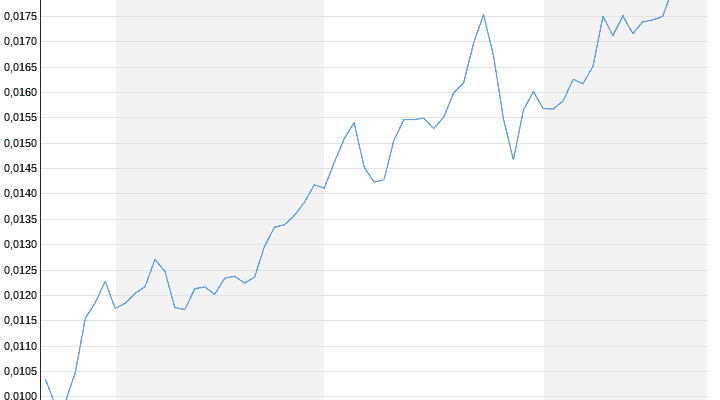Transfer questionable, failure threatened
Moscow pays interest on Eurobonds in rubles
6/23/2022, 4:06 p.m
Actually, Russia has to pay the interest due on debts abroad in US dollars or euros. However, because sanctions block access to stored foreign exchange, Moscow pays interest in rubles. If these transfers also get stuck, there is a risk of technical insolvency.
Despite the tense relationship with the West, Russia continues to pay interest on government bonds that are due – not in US dollars or euros, but in rubles. Interest was paid on two bonds (Eurobonds) due in 2027 and 2047, the Ministry of Finance announced in Moscow. The interest, equivalent to 235 million US dollars, was sent to the Russian payment agency NSD, it said. The ministry said the payment was complete.
The problem, however, is that the payments from there can hardly be forwarded to Western payment offices and thus ultimately to Western creditors, since the NSD is subject to Western financial sanctions because of the Ukraine war. Russia has therefore set up a new procedure in which the creditors have to prove the ownership of the bonds to the NSD. After that, the interest should be able to be passed on. However, due to Western sanctions, it is unclear whether the procedure will work.
It is also currently questionable when one can speak of a payment default with possible further consequences in the direction of a state bankruptcy. Because while Russia wants to service its debts and could do so given the existing reserves, the financial sanctions of the West stand in the way. The payment in the Russian national currency ruble is also disputed.
Insolvency threatened at the weekend
Actually, interest payments on foreign debt are usually provided in US dollars or euros. However, since Russia no longer has access to its foreign exchange reserves in the West due to sanctions, payments are to be made in the Russian currency from now on. President Vladimir Putin signed a corresponding decree on Wednesday.
In it he instructed the Russian government to clarify technical details within the next ten days and to determine banks through which payments can be processed in the future. Foreign creditors would then have to open an account with these banks, which can later convert rubles into foreign currencies. Debt repayment could thus work like European gas payments, only the other way around: Western gas buyers had to open an account with Russia’s state-owned Gazprombank in April and deposit euros there. Gazprombank then settles the amount in rubles and pays it to Gazprom.
At the end of May, Russia’s Finance Minister Anton Siluanov then proposed a corresponding concept for paying off foreign debts: Russia pays rubles into the bank, which converts them into euros or dollars, and the bondholders then receive foreign currency. According to Siluanow, this should primarily serve to circumvent western payment systems.
Interest payments at the weekend are particularly important. These relate to bonds for which a 30-day period expires during which Russia can still make delinquent interest payments without triggering a default. The question is what will happen if Russia does not pay the interest or pays it in rubles. Experts consider payment in rubles to be inadmissible unless this is indicated as an option in the specific terms of the issued bonds. Therefore, the path chosen by Russia could be seen as a default.
